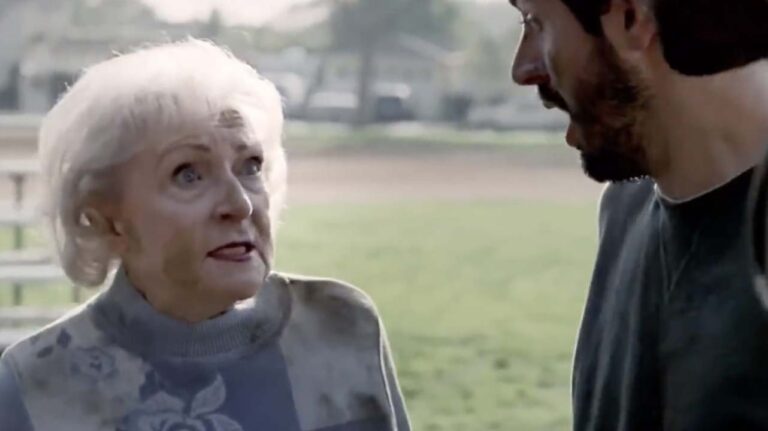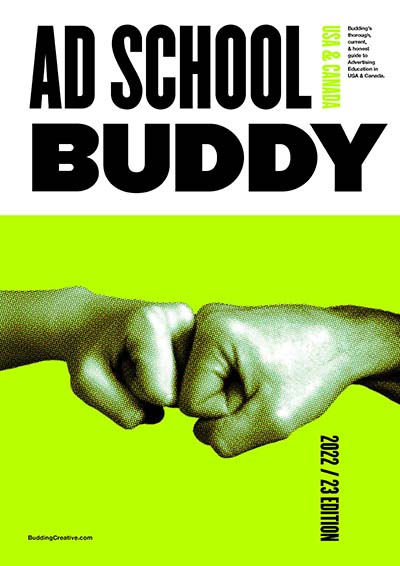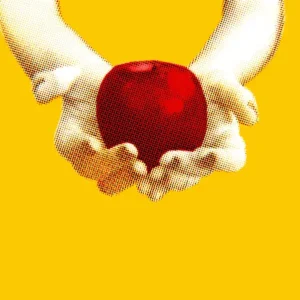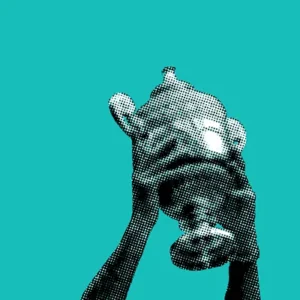The first days in your first ad agency
Congratulations, junior creative. You got the job.
You’ve shaken the right hands, signed the necessary papers and locked in a start date. So, what should you be expecting when you walk through the doors of your first ad agency. No more a student. Now a burgeoning professional.
You won’t really get a chance to do much on your first day.
You’ll be finding your desk, getting your email set up, learning the file management system, meeting your traffic manager and other co-workers, along with a plethora of other foundational tasks that just have to be done.
You might even be given your first brief. Here’s hoping.
The first few weeks are so important for your future career. You are making impressions and building foundational skills that will serve you for the decades ahead. So we’ve compiled some of the best advice our industry friends could provide.
Table of Contents
Dress right for your first day
Dress a similar way to how you did for the job interview. This is not the time for surprises.
There will come a time in every creative’s career (often during the shift from junior to mid-weight) when they start buying expensive new jeans, sneakers and so on. Kind of like the kids in the Burberry ad below. Perhaps you’ll start experimenting with haircuts and tattoos.
When you get there, sure. Have fun. But right now when you’re starting out is not the time to lean too far into the creative cliche.
By the time you become a senior creative, you’d be smart to move on. Dress for the job you want, not the job you have. Some creative directors get away with extreme personal styling, but not many.
As a rule, as you develop into more senior roles, you should be dressing more like a businessperson and less like a creative.
Listen today. Ask questions tomorrow.
I’m not saying don’t ask any questions. Of course if you don’t understand something, ask for clarification.
But today, your first day in your first ad agency, is a massive day. So much to do and so many people to meet. Today is not the day to get bogged down.
No-one is expecting you to take in absolutely everything. Go with the flow. Get through the day with a smile on your face.
Review what you’ve done at the end of the day. Take notes. Collect your questions. Politely reach out to people in the next few days. This will help you ask intelligent questions. And make sure that you can act upon the advice immediately without the clutter of thousands of other pieces of new information in you brain.
So, after a day or two, send an email to the people you met.
Firstly, thank them for helping you onboard and welcoming you into your first ad agency so generously. Then ask your question. Offer to come to their desk at a convenient time to run through the answer perhaps.
Then wait. Don’t charge over to their desk. Don’t interrupt their coffee break with your questions. Respect their time and their workload, and in time, they will come to respect yours.
Learn everyone’s name and role as quickly as you can
And not just in the creative department. Learn everyone’s name and how they fit into the machine.
Use those names regularly in the first weeks. Of course, you need to be working as hard as you can generating ideas on briefs you’ve been assigned, but you also need to be visible in the agency. Build connections in the department, ask smart questions to the account people.
Your value in your first ad agency is not just in your ideas. It’s also in how well you gel with the agency. If you make it a better place for others to be in as well. You can’t just do your own dance and expect the rest of the agency to follow you. (See the Samsung video below)
Although this is your first ad agency, it won’t be the last. And you will be amazed how many of these people will appear in agencies that you work in the future.
There are more than 250,000 people working in advertising agencies in the USA alone. But it’s still an industry where everyone knows everyone (or know the same people). Reputation is vital. Don’t think that you can burn bridges and simply move on to a new agency to start afresh. The advertising industry, no matter which country it’s in, is a village. It makes sense to be a fine, upstanding citizen from the start.
Don’t get caught up in office whispers
No matter the agency, there is always a clique that whisper, scheme, and put other staff members down. Always. Don’t be rude, but take pains not to join that gang. There is nothing good for the career of a junior creative there.
If those kind of intrigues your thing, well honestly, I’m not sure creative is the best path for you. The best creatives are curious and accepting of difference. Not judgemental and sneering.
Once you get into your first ad agency, help make the culture better. (Grrr. See the ad below). Be generous with your time and energy, and empathise with the pressures other people in your team are experiencing.

Start making a lunch list
Ask some key people out to lunch. Whether it’s your first ad agency or your tenth. Lunches are an easy way to make light conversation, make friends, and quietly impress people in the agency that matter.
And whatever you do, don’t make it an interrogation. Keep it light.
People want to help. They’ll offer up pearls of wisdom without you asking. Sure, ask an intelligent follow-up question or two. But this is their personal time. Make it worth their while.
Your value as a creative is not just how well you come up with and present original ideas. It’s also how well you gel with the rest of the team at the agency. It doesn’t mean you have to be best buddies with everyone in the agency. But it does mean that you can work effectively with the wider team.
At the top of your lunch list, I’d suggest your traffic manager. Beside your creative director, they will be your most important relationship in the agency. After that, account people. Senior art directors and copywriters too. Don’t neglect the studio either. Curiosity is the most important attribute a creative can have. Apply it to the people in every division of your first ad agency, and every one will benefit.

Your very first brief. Bring it on.
Go for it. Everyone is watching. The creative director, accounts, the rest of the department, the traffic managers. So pull out all stops and dazzle them.
This is the moment that your student portfolio becomes irrelevant. From this point forward, you will only be judged on your professional performance. You might be a junior, but the very first brief in your very first ad agency has outsized expectations. But don’t worry, the mouse can roar. (See ad below). You’ve done the training. You have the energy. You’ll do great.
But don’t show any outward stress or pressure. No-one appreciates drama.
As Michael Caine once said, “Be like a duck. Outwardly calm, but paddling like the dickens below the surface’. Keep a spring in your step and warm greeting for everyone you come across.

Energy, resilience and good humor
These are the most important attributes to bring to your first advertising agency. You will be asked to work on many projects – big and small – and you won’t succeed on all of them.
You will, however, be expected to succeed on smaller briefs.
So don’t treat them lightly. Always exceed expectations. Do what you can to make sure there are many great, on brief solutions to every small brief. Because small briefs are what you were hired for. Giving more experienced (and more expensive) teams more time to tackle briefs that have greater impact on the agency’s relationships with their clients.
You won’t be expected to succeed on the bigger briefs yet.
But that doesn’t mean you can’t beat expectations and blow the team away with something special. That’s what David Droga did. On his very first brief he came up with an idea that was preferred over the more senior teams in his (very well regarded, highly creative) advertising agency. And he won a silver lion. You can do it too. The ad is here below. The video quality isn’t great, but (pardon the pun) you’ll get the idea.

But if you don’t, that’s ok.
You were given that big, prestigious brief for experience, and to keep senior teams on their toes.
Senior teams hate losing a big campaign to a junior team. But if they are decent creatives and human beings, they will quickly get over it, congratulate you, and offer to help make it great.
You need to do the same thing. Take your hits maturely.
Every time you lose a brief you need to pick yourself up, dust yourself off, improve yourself in ways that you came up short, and get back to work to make something even better that adheres to the feedback you’ve received. (See ad below).
And if you can, perhaps offer up a suggestion to the team that won the brief. You might have a social idea that fits nicely with their concept. Or maybe you found some images during your own research that might help as they develop the idea toward a presentation.
Do it generously. Don’t try to get your name on the piece of work, or make a fuss about what your contribution was. The people who matter will notice.

Presenting to your creative director for the first time
We have a more complete article about presenting to your creative director here. But here are some extra tips to help you prepare for your very first presentation to your creative director in your first ad agency.
1. Ask other teams in the agency how they present their work to the creative director and the team.
2. Only present complete ideas. No half-completed thoughts or ‘kinda-sorta’ directions. Write end lines and make rough scamps. You’re putting on a show. And omissions will be noticed more than what is included. (See Miller Lite ‘Wrestlers’ below. One of the funniest ads ever made.)
3. Leave time to practice your presentation.
4. Lead with a concept that is solid and 100% on brief. Yes, you want the first impression to matter. But don’t try to blow your CD away with the first idea. Give him or her one in the bag to start with – even if it isn’t what you are most excited about. Take risks later in the presentation after the creative director is assured you have at least one that works.
5. Manage your nerves. Remember, everyone wants you to succeed.
Taking feedback
Accept feedback on your work generously and with genuine curiosity. Don’t resist it. Don’t be argumentative. Every advertising campaign will go through changes.
If you really think that you can respond to the issues differently to the feedback, sure. Do it if you like. But do it the way the feedback suggested too. Ignore feedback at your peril.
As you mature as a creative, you’ll learn to gently push back against feedback diplomatically and effectively. But as a junior, you risk being branded as ‘difficult’. And as cattle know, brands can be very hard to clean off.
Most importantly, don’t ever fall for what Steve Jobs calls ‘The Idea Disease’. The video is below.
It is all too easy to fall for the delusion that because you came up with the idea, you are the authority on it. You originated the idea, but the second you presented it, it became the agency’s idea.
Understand this, and your attitude to receiving feedback will mature. It will also help your work get made. And get made well.too
Finally, really make an effort to understand how the agency makes money
Advertising is a reasonably well-paid career. The talented and fortunate few that are promoted to the most senior roles will make a lot of money. But the people who make the most money are the entrepreneurs that start their own agencies.
So, learn the business. Find out how fees are structured, how head hours are expensed and how client agreements work. Even if you never start your own agency, this information is incredibly valuable. Honestly, I’m amazed that more (creative) graduate programs don’t teach this in far greater depth.
Take account people out to lunch and simply ask them. Ask if you can see how the client is billed for the work and what they agreements look like.
It’s important knowledge for your personal and creative growth.
Things to do

The Ad School Buddy
The best guide. Undergrad, portfolio, grad, incubators and more
More Articles
The Ad School Buddy
To make it as a professional ad creative, your choice of school is key. This is the most comprehensive guide to creative education in North America by far.






